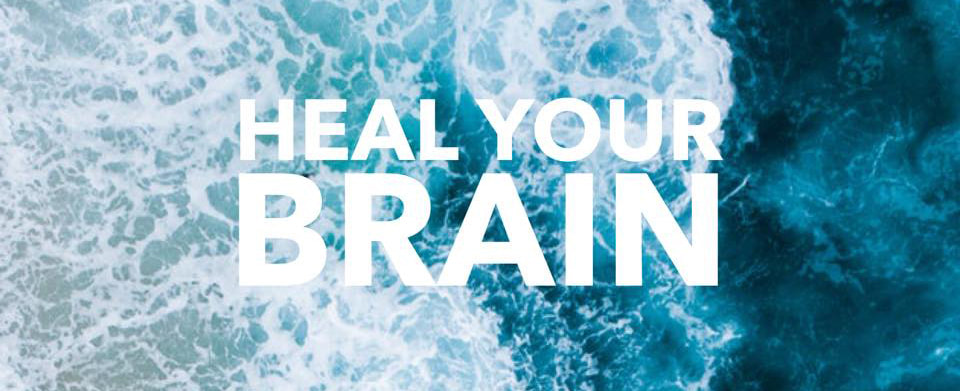|
By: Gleason Center Editors, Dr. Daniel Gleason DC We are what we think. We are what we eat. We are how we move. From a holistic perspective it is impossible to separate the mental and emotional from the physical and nutritional. I really appreciate that Natural Awakenings has dedicated this month’s issue to mental and emotional WELLNESS. This wonderful monthly magazine is great at using terminology that frames our thinking in terms of HEALTH, not just the absence of disease. The conventional medical model is focused on disease; conventional mental health too often uses terms like bipolar, depression and anxiety for emotional symptoms. Mental problems are given names like ADHD, Autism, and Alzheimer’s with great interest in what drugs can be used but with little emphasis on what is causing the problem. As a way to understand this month’s topic let’s divide it into three parts:
Mental/Emotional Individually you can use meditation, yoga, prayer, or gratitude. Getting involved in helping others has been shown to increase one’s level of happiness and satisfaction. There are many professional mental health practitioners who can be of great help. These include psychologists, social workers, and hypnotherapists as well as group therapies including 12-step programs, grief groups, and almost any topic has its own support group. I personally consult with a therapist/coach who uses Positive Psychology. This approach, pioneered by Martin E.P. Seligman Ph. D, studies what makes happy people happy and avoids thinking in terms of neurosis and psychosis. Living in the moment is a great antidote to “the blues” as I like to call them. Making eye contact and listening carefully to everyone you meet is a powerful way to lift your own spirits as well as the spirits of those around you. People seldom say hello anymore. The most common greeting today is, “How are you?”. How often in a day are you asked this question? What is your response? Does your greeter really want to know how you are? I try to respond in a way that gets a rise out of people. Here is one of my favorite responses when someone asks me “How are you?” I say, “Livin the Dream!”. My Dad would invariably answer “Terrific” or “Couldn’t be Better”, or even “If I was any better I couldn’t stand it”. Try it sometime and see what kind of response you get. Sleep is a time for forgetting the hurts of the day and integrating what you have recently learned into what you already know. Lack of quality and quantity of sleep is a major contributor to mental and emotional problems. Why We Sleep by Matthew Walker Ph.D. is a great source of what can be done to improve one’s sleep efficiency. What the happiest people in the world have in common is a sense of community. People who meet with a supportive group of friends, two or more times per month, report the highest rates of happiness and have a 40% lower rate of heart disease and cancer. Nutritional Our brains require optimal nutrition to operate optimally. Blood sugar fluctuation from eating the Standard American Diet (SAD) is one of the most common causes of mental and emotional problems. Low carb, high fat, Ketogenic diets often lead to remarkable improvements. In our office, we regularly test for nutritional deficiencies as related to emotional and mental health. Most commonly, we find people to be low in magnesium, B vitamins (especially B6), fish oil and vitamin D. Inflammation and toxicity should also be tested for as they often play a role. I recommend consulting with professionals who specialize in this area who can help you investigate these possibilities. Nutrition also has a major impact on the gut-brain connection. I recommend The Second Brain by Michael D. Gershon, M.D. that covers much of the current research on how our digestive systems affect our brain. The GI tract has its own “brain” and it can function even when the nerves to and from the brain are severed. The gut flora/micro biome instructs us as to neurological and immune function, literally making us happy or sad, confused or clear, creative or blocked. The makers of probiotics are working on supplements with blends attempting to take advantage of this; literally producing “Happy Pills”. Physical Clinical studies indicate that exercise is often superior to medication for most symptoms of anxiety and depression. A daily walk outside, rain or shine, is one of the most powerful and affordable antidotes to “the blues”. Yoga, Tai Chi, dance, and aerobics have been proven to improve mental and emotional health. Working in the yard or garden are wonderful ways of integrating movement into your daily life. Although we tend to think of mental and emotional symptoms as being, “all in your head”, we are complex and integrated beings and, from a holistic perspective you are what you think, eat and how you move! If you like this post, you might also enjoy: March Newsletter
0 Comments
Leave a Reply. |
CONNECT WITH US!Follow us on Facebook for weekly inspiration, newsletters, recipes, and giveaways!
CATEGORIES
All
SEARCH THE BLOG |
Take the first step. We're ready for you.
616-846-5410
M/W/F 8:00am - 5:30pm
Closed 12:30pm - 1:30pm (Lunch)
T/Th 8am - 1pm
Sat/Sun Closed
Home | Order Supplements | Privacy | Terms | Contact | Facebook | Review Us
M/W/F 8:00am - 5:30pm
Closed 12:30pm - 1:30pm (Lunch)
T/Th 8am - 1pm
Sat/Sun Closed
Home | Order Supplements | Privacy | Terms | Contact | Facebook | Review Us
Information and products offered here are not intended to diagnose, treat, cure, or prevent any disease. Statements have not been evaluated by the FDA.
© 2023 The Gleason Center
© 2023 The Gleason Center



